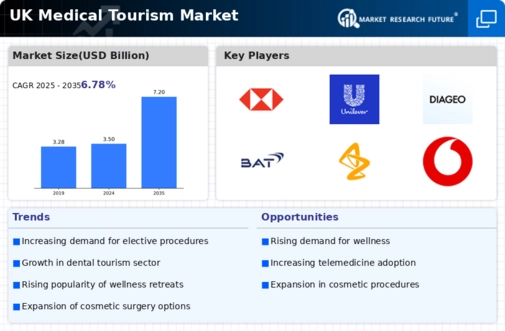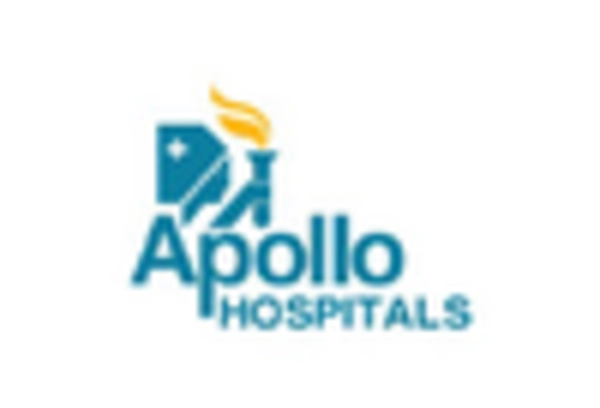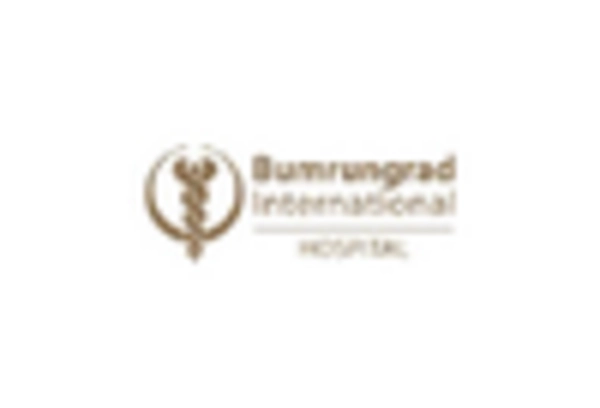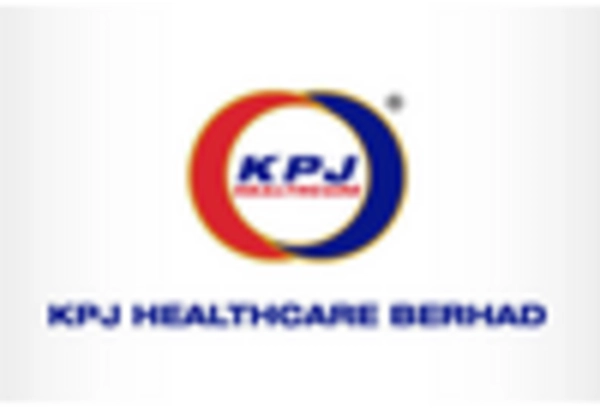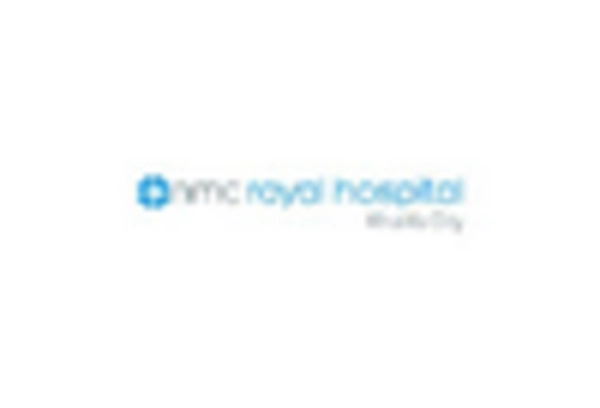Quality of Healthcare Services
The medical tourism market is also influenced by the perceived quality of healthcare services in various destinations. Many countries have established themselves as leaders in specific medical fields, offering advanced technologies and highly trained professionals. For example, India and Singapore are renowned for their cardiac and orthopedic surgeries, respectively. The UK patients are increasingly aware of these options, leading to a rise in inquiries about overseas treatments. The medical tourism market benefits from this trend. Patients seek assurance of high standards and successful outcomes, which can often be found at competitive prices abroad.
Cost-Effectiveness of Treatments
The medical tourism market in the UK is increasingly driven by the cost-effectiveness of treatments available abroad. Patients often seek procedures that are significantly cheaper than those offered domestically. For instance, cosmetic surgeries can cost up to 70% less in countries like Turkey or Thailand compared to the UK. This price disparity encourages individuals to consider traveling for medical care, particularly for elective procedures. The potential savings on treatments, combined with the opportunity to experience a different culture, makes medical tourism an attractive option. As a result, the medical tourism market is likely to see continued growth as more patients prioritize affordability without compromising quality.
Availability of Specialized Treatments
The medical tourism market is significantly impacted by the availability of specialized treatments that are not readily accessible in the UK. Certain countries offer unique therapies or advanced procedures that cater to specific medical conditions, such as stem cell therapy or fertility treatments. This availability attracts patients who are seeking alternatives to conventional treatments. For instance, the UK has seen a growing interest in traveling to destinations that provide cutting-edge cancer treatments. As patients become more informed about their options, the medical tourism market is likely to expand, driven by the desire for innovative and specialized healthcare solutions.
Influence of Digital Health Technologies
The rise of digital health technologies is transforming the medical tourism market by enhancing patient engagement and accessibility. Telemedicine, for instance, allows patients to consult with healthcare providers before traveling, ensuring they make informed decisions about their treatment options. This technology facilitates smoother communication and follow-up care, which is particularly appealing to UK patients considering overseas procedures. As digital health solutions continue to evolve, they are likely to play a pivotal role in shaping the medical tourism market, making it easier for patients to navigate their healthcare journeys and access the services they need.
Regulatory Environment and Accreditation
The regulatory environment and accreditation of healthcare facilities play a crucial role in shaping the medical tourism market. Patients are increasingly concerned about the safety and quality of care they receive abroad. Countries that have established robust accreditation systems, such as those recognized by the Joint Commission International (JCI), tend to attract more medical tourists. The UK patients are likely to prefer destinations where hospitals meet international standards, ensuring a level of trust in the services provided. This focus on accreditation may lead to a more competitive landscape in the medical tourism market, as countries strive to enhance their healthcare offerings.


